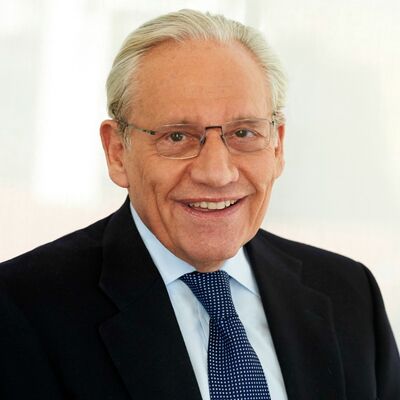
Julia Weber
Staff writer
Investigative reporters are tasked with asking the tough questions, and few people know this better than Bob Woodward.
Woodward, one of the most renowned journalists in the United States, will speak at 10:45 a.m. today in the Amphitheater, part of the Week Eight Chautauqua Lecture Series theme: “Freedom of Expression, Imagination and the Resilience of Democracy.”
With fellow investigative journalist Carl Bernstein, Woodward investigated the Watergate burglary scandal in 1972 for The Washington Post and continued to report on the situation as it developed. The pair’s reporting exposed the extent of the corruption in Richard Nixon’s administration, and eventually led to the president’s resignation.
More recently, Woodward has written extensively on President Donald Trump. With unprecedented access to Trump, the two spoke at length throughout his presidency. Now an associate editor at The Post, Woodward has garnered nearly every major journalism award in his storied career.
He’ll take the Amp stage this morning to talk about his career in reporting on major political events, the current and future states of the press and the importance of a free press in society.
“I’m going to tell stories and what I’ve tried to learn from some of those incidents (of reporting on Watergate and Trump) and, sometimes, you learn the most from mistakes,” he said.
Throughout Trump’s time in office, the two conducted a lengthy series of interviews, which Woodward details in his recently published audiobook, The Trump Tapes.
“I was surprised he agreed to do these interviews,” Woodward said. “I think his supporter Lindsey Graham, the South Carolina senator, said to him that I would not put words in his mouth.”
To Woodward, it’s important for reporters to take their sources seriously.
“When you are reporting, you need to make sure you take the people you’re interviewing, talking to, talking about, writing about – take them as seriously as they take themselves,” he said.
“Most people take themselves seriously and you have to learn to listen very aggressively and be patient. It’s a great job.”
The state of journalism and increased politicization of truth are concerning, he said.
“The times have changed radically,” he said.
Powerful reporting comes from well-supported journalism and avid protection of the First Amendment; they’re what allowed Woodward to pursue these stories throughout his career, he said — and when reporters are overworked and newsrooms are understaffed, the press suffers, and as a result, so does the public.
“You never get out (of the newsroom),” Woodward said. “You’re tethered to the office and that’s unfortunate for journalism and readers, viewers, listeners.”
He said he worries about the internet’s impact on journalism and the 24-hour news cycle’s rushed nature.
“Part of it (is) the whole culture of the internet. Impatience, speed, ‘Give it to me in a sentence or a word.’ … The rush to judge and summarize, but part of it’s our fault, I think. … It’s all too fast,” he said.
Quality journalism takes time, he said, especially when writing about sensitive topics with high stakes.
“I remember the managing editor at The Post, Howard Simons, once said to me – this was during Watergate – I was there with my typewriter and all tight, and he came over and said ‘Relax, you don’t understand a person in an afternoon. It may take weeks, months or years.’ That, I think, is really true,” Woodward said.
Even in a moment when distrust of the press is high and misinformation and disinformation are rampant, Woodward is overall optimistic about the prevalence of quality journalism.
“A lot of people talk about how we’re living in a post-truth era, which I don’t think is the case,” he said.
Reporting that emerged recently from Trump’s indictment has shown that more than ever, Woodward said, reporters are pursuing crucial stories that rely on concrete evidence, such as documents and firsthand detailed notes, as well as investigative journalism techniques like talking to witnesses and cultivating relationships with knowledgeable sources.
Woodward is aware of the controversial nature of his job, but that doesn’t deter him from digging deeper to uncover stories. To him, it’s important that these stories keep being told, even when they’re unpopular.
“Controversy – that’s actually inevitable,” he said. “If you’re digging into something that somebody or some group of people don’t want publicized, of course they’re not going to like it.”




